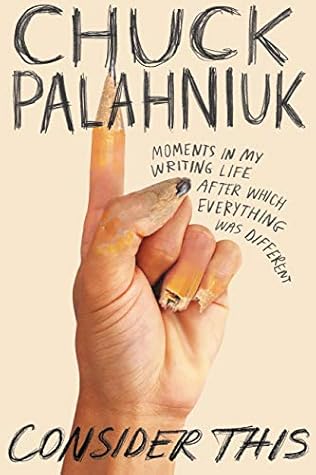More on this book
Community
Kindle Notes & Highlights
Read between
May 7 - July 13, 2020
want a gradual discovery process. The outcome is more or less predictable: genitals. So we want sustained arousal and engagement.
Sure, there’s a smidgen of tension. Who does what next? But everything is so summarized the reader hasn’t had the pleasure of discovering anything. The payoff is in the first sentence. We don’t know what the barn looks like, or smells like. We’ve no idea how Lilla feels, if her shoes hurt, or if she’s been waiting tables all day. We’re just—blam—dropped into the action.
But even the best jokes rely on creating tension and then resolving it very quickly.
An opening creates a question and promises it will be answered, but not too quickly. Consider the first line of Gone with the Wind. “Scarlett O’Hara was not beautiful, but men seldom realized that when caught in her charm…” It instantly makes you wonder, Why? You’re hooked.
But when you read any form of the verb “is” or “has,” no corresponding brain activity occurs. Likewise with abstract verbs such as “believe” or “love” or “remember.” No sympathetic cognitive mirroring, or whatever, takes place. Thus a passage like, “Arlene was at the door. She had long, brown hair, her face had a look of shocked surprise. She was taller than he remembered…” is less engaging than, “Arlene stepped into view, framed by the open doorway. With one gloved hand she brushed her long, brown hair away from her face. Her penciled eyebrows arched in surprise…”
With that in mind, I’d tell you to avoid “is” and “has” in any form. And avoid abstract verbs in favor of creating the circumstances that allow your reader to do the remembering, the believing, and the loving.
You may not dictate emotion. Your job is to create the situation that generates the desir...
This highlight has been truncated due to consecutive passage length restrictions.
So once you’ve established your characters and settings, give your people a glimpse of the outside world. It’s based on Heidegger, sort of, and his idea that escaping from your Dasein or destiny is pointless.
The larger world reminds characters of their smallness and mortality, and it prompts them to take disastrous action. Think of the final flashback reveal in Suddenly, Last Summer. Sebastian finally takes action, but he’s already doomed.
Perhaps this is why people dream of traveling a lot at retirement. Seeing the world and recognizing one’s own insignificance ma...
This highlight has been truncated due to consecutive passage length restrictions.


